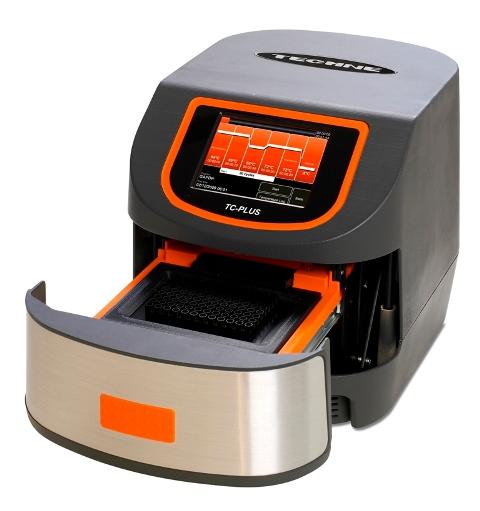Members Login

Channels
Special Offers & Promotions
Techne TC-PLUS thermal cycler is ideal for new fast PCR protocols
 With one of the fastest aluminium blocks on the market, the Techne TC-Plus thermal cycler has been shown to contribute to significant savings in PCR reaction times by using faster ramp rates, modified programs and modified reaction mixes.
With one of the fastest aluminium blocks on the market, the Techne TC-Plus thermal cycler has been shown to contribute to significant savings in PCR reaction times by using faster ramp rates, modified programs and modified reaction mixes.
Time savings are an advantage in many research labs and the Techne TC-Plus is the ideal tool for use when optimising for fast PCR protocols. This thermal cycler offers flexible programming and rapid block ramp rates of up to 5ºC per second. Comparing the same PCR program on the TC-Plus and the slower TC-512 gave a time saving of around 30 minutes simply by using faster ramping (1 hour compared with 1 hour 30 minutes). There were no appreciable differences in yield or sensitivity between the two thermal cyclers.*
Another way to shorten run times is to modify the standard protocol by reducing the number of steps and/or hold times of individual steps. A temperature gradient optimisation experiment changing from three to two steps using the TC-Plus saved 22 minutes (52 minutes run time for the two-step protocol; 1 hour 14 minutes for three steps). There was a decrease in the amount of 400bp fragments, but no noticeable difference in yield of the 100bp PCR product.*
Reagents specifically formulated for fast PCR contain specialised enzymes and stabilisers to facilitate rapid ramping and short hold times. Use of a fast PCR mix gave improved yield and sensitivity compared with the standard mix when running a fast protocol on the TC-PLUS. However, this was overall lower than when using a standard protocol with longer hold times for each step. The total run time using the fast protocol was around 40 minutes compared to the standard run time of 1 hour on the TC-PLUS or 1 hour 30 minutes on the TC-512.*
According to Rob Skehens, Bibby Scientific Marketing Director, ‘The results in our new Application Note show that while the faster ramping of the TC-Plus alone gives significant time savings, modifying the program and changing to a fast PCR mix can shorten run times even further. If any resultant compromises in yield and sensitivity are unacceptable, some reaction optimisation may be needed.'
* Bibby Scientific Application Note A01-003A
For further information please visit www.techne.com
Media Partners


